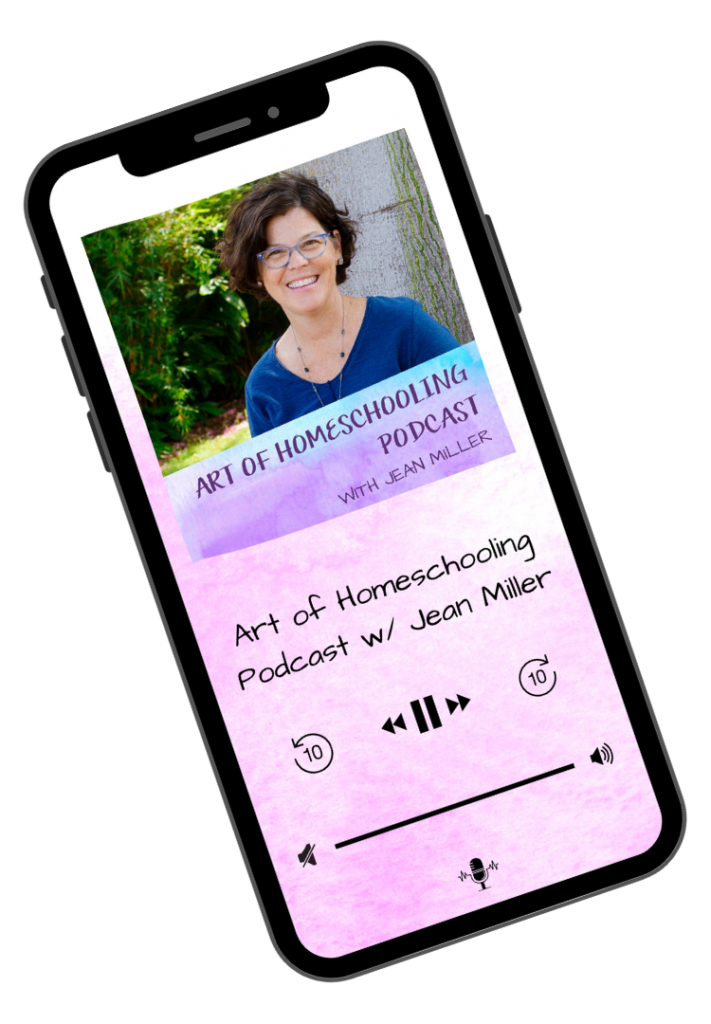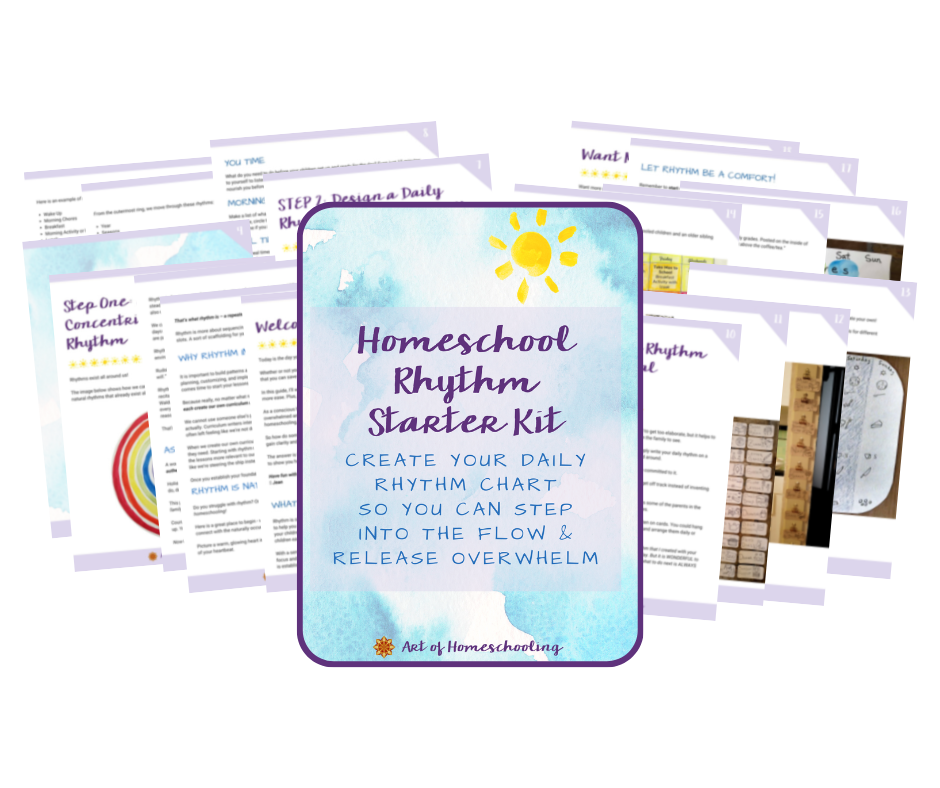Episode 194
Just a friendly reminder that as you plan for your upcoming lessons…don’t forget to let the learning rest.
I know that most of who choose homeschooling are longing for a more relaxed approach to learning. Maybe we experienced a lot of pressure when we were in school. Or we feel the pressure and watchful eyes of otherwise caring loved ones.
But while deep in our hearts, we may long for a gentler approach, we often forget that in our day to day lives. Am I right?
I know I sure did. I kept planning the next lesson, practicing skills hoping my kiddos would finally get it…whether it was the writing skills, reading, or math facts. And sometimes this felt like I was always pushing my kids…for just a little more focus, skills practice, or lesson time.
And this can be exhausting for everyone! Believe me, I know.
Let the Learning Rest
So here’s my message for you today: don’t forget to let the learning rest.
I’ve just returned from Taproot 2024, the wonderful weekend retreat and homeschool training that I host every summer. One bit of magic at Taproot is that there always seems to be a recurring message that everyone needs to hear that emerges over the course of the weekend.
This year, one of those reoccurring messages was this: We teach the lessons and practice the skills, then let it rest for a few weeks or months before circling back.
Sounds simple, doesn’t it? But I find over and over again that we tend to forget about rest. And we often forget the importance of coming back to it as well.
Like when we demonstrate writing a summary for our children and their writing is so messy we can barely read it. Or when we teach a vowel team and practice a collection of words with that combination, only to discover the next day that our children struggle with reading those words. Or when we introduce skip counting by 5s with bean bags and our children forget it all by the following week.
I know we can feel discouraged in these scenarios. I sure did. And I hear from parents all the time: my kiddo just doesn’t seem to retain what I’ve taught.
What we’re all missing is that children don’t learn skills or concepts immediately. We expect that when we teach something and practice it a few times, then our children should know it. Because that’s not how learning works. That’s not how human brains work!
We All Need Downtime
But we all need downtime. Time to rest and process what we’re learning so that we can integrate it into what we already know.
Our brains also need downtime. Letting the learning rest is actually part of the learning process.
I am constantly amazed me that Rudolf Steiner, the founder of Waldorf education, seemed to know this over 100 years ago when he trained the teachers for that very first Waldorf school.
He created a lesson rhythm that introduced a new concept one day through story, then suggested letting it rest before coming back to it to review it the next day. And that when we take ideas into our sleep life, we absorb more of the learning.
We can expand this idea beyond a two day lesson rhythm as well. When we teach our children new concepts and skills, we can focus on the skills or concepts for a block of time, say four weeks or so, then let them rest for a few weeks before returning to them.
Learning doesn’t only happen when a child is “on task” but also happens when we let it rest. And learning isn’t always linear. Sometimes there are bursts of understanding. Learning takes time.
Rest Isn’t Nothing
And rest isn’t nothing. We tend to think of rest as a waste of time so we try to pack as much learning in as possible.
But the truth is that rest is an important part of the learning process. For many of us, when we first encounter this idea, we may think of rest as giving up or letting go completely.
The most important piece of this process is to let the learning rest and then come back to it a few weeks or so down the road.
As I said, learning actually takes time. Sometimes it’s years of time! So don’t forget to let the learning rest. Then come back to the skills you want to help your child learn and practice some more. Let them rest again for a bit.
This cycle of lessons and rest will serve you well as you plan for your upcoming homeschool year.
Just don’t forget to let the learning rest and then come back to it a little down the road. This is a much more relaxed way of homeschooling and also more aligned with how our brains learn.
Here are some phrases you can say to yourself to help you remember the importance of rest…
- “I’ve done the work, now let the learning rest.”
- “I’ve taught the lesson, now let it rest.”
- “Let it rest and come back to it later.”
All the best as you plan for your upcoming homeschool year! Let me know how I can help ~ here’s all that I offer for homeschoolers.

Rate & Review the Podcast
If the Art of Homeschooling Podcast has inspired you, I’d LOVE it if you could rate and review the podcast on your favorite podcast player! Reviews can be left on Apple Podcasts (iTunes), Podcast Addict, or Stitcher.
Or simply pop on over to lovethepodcast.com/artofhomeschooling and choose where you want to leave your review.
And if you want to show your appreciation for the Art of Homeschooling Podcast, you can buy me a cup of tea!
Never Miss an Episode!
Check Out All the Episodes





